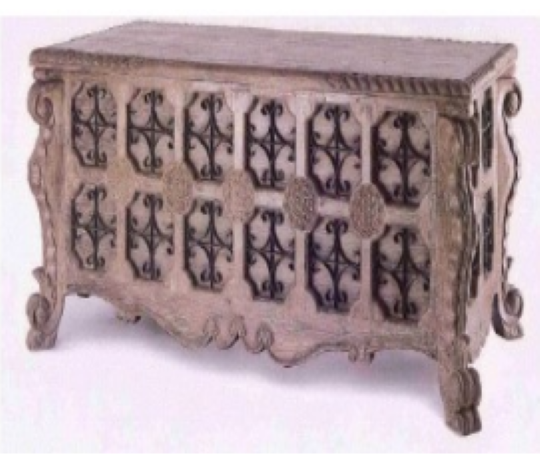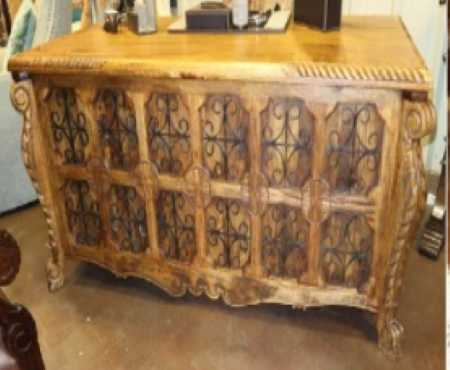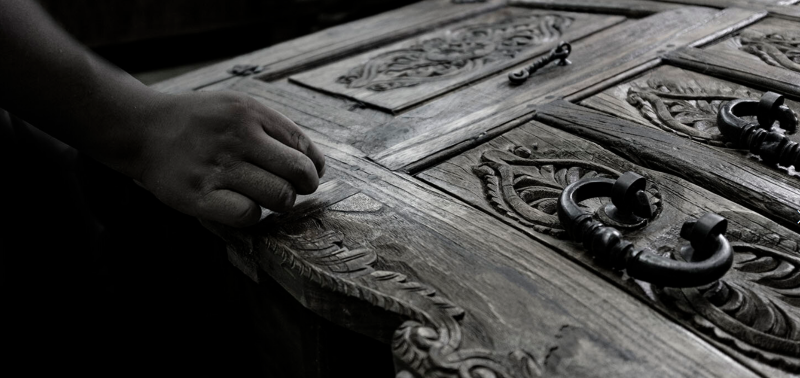3-judge panel agrees with district court’s decision to award more than $150,000 to manufacturer whose designs were copied and sold to Texas retailers
PHOENIX, Ariz. – A judge for the U.S. Court of Appeals for the Ninth Circuit upheld an earlier district court decision that a Texas-based importer copied the designs of furniture in the Jason Scott Collection and sold nearly identical pieces to Texas retailers.
As part of the decision, it also agreed with the court’s decision to award more than $150,000 for copyright infringement and compensation for lost business.
This figure could be increased based on the amount of attorneys fees to be determined by an appellate commissioner.
In a 38-page filing dated May 30, a three-judge panel described a scenario in which Trendily Furniture LLC and Trendily Home Collection “intentionally copied three unique, high-end furniture designs” by plaintiff Jason Scott Collection.
The panel thus affirmed a decision by the United States District Court for the District of Arizona in December 2022 that held Trendily liable for trade dress infringement of these pieces and the awarding of various damages including more than $132,500 in attorney’s fees.
The panel held that the district court was correct in its determination that there was a likelihood of confusion in the marketplace between the Jason Scott Collection pieces and the Trendily pieces sold at competing retailers.
“Considering similarity, proximity and retailer confusion, the panel held that because the products and marketing channels of the parties were nearly identical, the district court did not err in its decision of confusion finding,” the May 30 opinion stated.
The case is significant because it serves as a warning to retailers and wholesalers alike that intentional copying of product designs is not permitted in a court of law. It also alludes to the damage that can be done in terms of severed business relationships, particularly in markets where wholesalers have exclusivity agreements with retailers.

The panel held that the district court properly considered several other factors weighing in its decision, including that the “JSC pieces were continuously manufactured and sold since 2004, that JSC had a longstanding and well-known presence in the high-end furniture market, and that JSC’s furniture was distinctive in the minds of purchasers. The panel explained that even if it were to disregard JSC’s evidence of retailer confusion, that evidence is not necessary for JSC to establish secondary meaning, and direct proof of end consumer confusion is not required.”
The case revolves around three pieces that the plaintiffs claimed Trendily copied in 2016: the Sacred Heart Table, the Iron Star Desk and the Bogota Buffet, which Jason Scott designed in 2003.
These and other pieces in the collection are made by villagers in Indonesia that Jason Scott Forsberg has worked with dating back to 1998. They are made with solid reclaimed woods such as teak and feature detailed wood carvings and metal accents.

The filing stated that since 2004 JSC has sold its pieces exclusively to authorized retailers. Based on these agreements, JSC restricts the supply of its pieces to a single store within a certain radius. In turn, the retailer agrees to restrict sales to end consumers.
One such retailer, Brumbaugh’s Furniture in Fort Worth, has the exclusive right to market the Jason Scott Collection in that market. However, co-owner Sally Brumbaugh saw the pieces at Western Heritage Furniture, a Weatherford, Texas, retailer, just west of Fort Worth. The court documents said that Trendily owner and operator Rahul Malhotra manufactured similar pieces at the request of Western Heritage owner Ron McBee.
Brumbaugh contacted Scott believing he was selling furniture to a competitor in violation of the exclusivity agreement. The court documents said that the pieces were so similar that even Scott mistook the furniture as his own.
Another retailer called Coyote Candle in Lubbock, Texas, which purchased furniture from both JSC and Trendily, also noticed that Trendily was selling the pieces to one of his competitors, Hat Creek Interiors, also in Lubbock.
When he discovered that Hat Creek was selling the Trendily pieces, Coyote Candle owner Ben Aufill mentioned to Jason Scott’s brother, Brian Forsberg, that a retailer was selling JSC knockoffs. This resulted in a disagreement between the parties that ultimately severed the business relationship, as Aufill did not want his identity revealed in the matter.
However, Aufill’s name is mentioned several times in the lawsuit, including in this context:
“Brian requested the name of the manufacturer, but Aufill only agreed to disclose the information on very specific terms. Concerned that he would be considered a “snitch,” Aufill told Brian, “I’ll tell you but . . . if you mention my name I’ll kick your ass and stop buying Jason Scott and no more Tex-Mex tacos at the race car shop!” Aufill eventually made good on his promise.
In May 2017, Jason Scott registered the pieces in question for copyright protection and his attorney sent two cease-and-desist letters to Trendily in May and June of 2017 stating that the Trendily pieces infringed his copyrights. When the company saw that Trendily continued to pitch and display the pieces to retailers and display them in its showroom, it filed a lawsuit in August 2017, suing the company for copyright and trade dress infringement and unfair competition.

The district court granted summary judgment on the copyright claim and awarded JSC $19,995, the amount of Trendily’s profits on the infringing sales. It also permanently enjoined Trendily from selling any infringing products and ordered Trendily to destroy the remaining Trendily Pieces.
Because of the severing of the relationship with Coyote Candle, the court also awarded JSC three years of lost sales and profits from the retailer, totaling $132,747. As part of its appeal, Trendily objected to the amount, saying it was more than six times the $19,995 JSC was awarded for its copyright claim.
The panel rejected this claim and explained that, because Trendily and JSC operate in the same market and share some of the same customers, Trendily’s precise copying would foreseeably lead to damaged business relationships.
“Moreover, it was Trendily’s refusal to cease and desist — even after it was sent JSC’s certificates of copyright registration — that forced JSC’s initiation of this lawsuit, which was the ultimate reason Aufill’s identity needed to be revealed. Thus, Aufill’s necessary involvement in the infringement litigation made damages JSC suffered from that involvement compensable.”
The panel also agreed with the court’s decision to award JSC statutory attorneys’ fees, finding the award was warranted because “the copying was willful, it continued after Trendily received cease-and-desist letters, and Trendily had resisted compliance with the court’s injunction requiring destruction of the Trendily Pieces.”
The district court, however, rejected JSC’s argument that it was entitled to reasonably foreseeable damages for an inability to increase the price of its furniture beginning in 2017. The court, the panel said, determined that JSC provided no evidence that the furniture market would not have supported a price increase while the Trendily Pieces were on the market. It said that JSC did not challenge this ruling on appeal.
The district court also determined that JSC was not entitled to treble damages and the company also did not challenge this determination on appeal.
Attempts to reach Trendily for comment Thursday were unsuccessful. Home News Now has also reached out to Jason Scott Collection, which declined comment at this time.






One thought on “Appeals court rules in favor of Jason Scott Collection in copyright, trade dress infringement case”